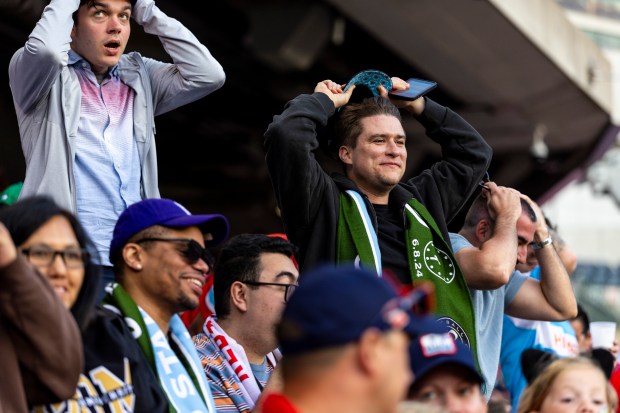A Chicago alderman Thursday proposed regulating and taxing hemp stores in the city, to prevent underage consumption while generating revenue.
The proposal would run counter to calls by some in the cannabis industry and in state government to ban the smoke shops or to require testing and labeling to tell consumers what they’re getting.
Ald. William Hall, 6th, said testing and other restrictions could be added later, by health regulatory agencies. As a first step, he said, it’s important to limit access to the drugs to those 21 and over.
“We need to put a line in the sand,” Hall said. “No one under 21 should be touching anything that’s hemp related. Safety and sustainable revenue is the focus.”
Some 260 shops that sell hemp in the city could generate more than $22 million a year, he estimated.
Currently, the hemp industry is unregulated, and operates through a legal loophole. The 2018 federal Farm Bill legalized hemp, defined as cannabis containing less than 0.3% delta-9 THC, the part of cannabis that gets users high. The law was intended to allow production of hemp fiber and CBD, a part of cannabis that doesn’t get users high, but is thought to have other benefits.
But business operators have figured out how to synthetically derive other cannabinoids from hemp, such as delta-8 THC, said to be milder, or higher concentrations of delta-9 THC.
Members of the state-licensed cannabis industry, which sells high-THC products, have proposed banning such hemp products, saying they are unsafe and don’t have to meet the same standards as does cannabis.
One proposed state law would regulate hemp so strictly that hemp business owners say it would put them out of business.
Chicago Ald. Brian Hopkins, 2nd, has proposed banning hemp cannabinoids in the city, noting that high school students have in some cases been hospitalized after ingesting the products.
“It’s a significant problem,” he said. “They’re selling a dangerous unregulated product that’s making kids sick.”
The executive director of the Illinois Hemp Business Association, Charles Wu, who owns Chi’Tiva hemp stores in Chicago and suburban Worth, said responsible members of the industry welcome regulation, including testing and labeling products.
He hadn’t seen the proposed ordinance, but said he was optimistic about instituting regulations and taxation at the city and state level.




